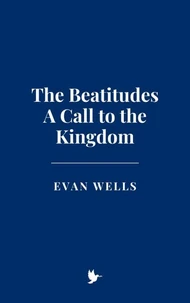The landscape of spiritual growth has been profoundly shaped by various movements and authors, particularly in the 19th and 20th centuries. The emergence of Christian existentialism, as seen in works by Søren Kierkegaard and Dietrich Bonhoeffer, explored the tension between faith and doubt, individual choice, and the call to be in authentic relationship with God. In parallel, liberal theology, with its emphasis on the immanence of God and the moral imperative of social justice, further complicated the trajectory of spiritual growth.
At the same time, the rapid pace of technological and social change created an environment in which Christian writers began grappling with the challenges of modernity-seeking new forms of expression that would speak to the contemporary believer's sense of alienation, doubt, and disillusionment. Within this context, contemporary Christian literature began to emerge as a unique genre, distinct from traditional theological works or biblical commentaries, and reflective of the broader cultural currents of the 20th and 21st centuries.
Writers like C. S. Lewis, who brought Christian themes into the realm of fiction, had a profound influence on the spiritual growth of modern Christians. Through works like Mere Christianity and The Chronicles of Narnia, Lewis demonstrated that literature could serve as both a form of spiritual exploration and a way to nurture the soul. His approach combined apologetics, moral philosophy, and the imagination, offering a vision of Christian growth that was both intellectually rigorous and artistically enriching.
The landscape of spiritual growth has been profoundly shaped by various movements and authors, particularly in the 19th and 20th centuries. The emergence of Christian existentialism, as seen in works by Søren Kierkegaard and Dietrich Bonhoeffer, explored the tension between faith and doubt, individual choice, and the call to be in authentic relationship with God. In parallel, liberal theology, with its emphasis on the immanence of God and the moral imperative of social justice, further complicated the trajectory of spiritual growth.
At the same time, the rapid pace of technological and social change created an environment in which Christian writers began grappling with the challenges of modernity-seeking new forms of expression that would speak to the contemporary believer's sense of alienation, doubt, and disillusionment. Within this context, contemporary Christian literature began to emerge as a unique genre, distinct from traditional theological works or biblical commentaries, and reflective of the broader cultural currents of the 20th and 21st centuries.
Writers like C. S. Lewis, who brought Christian themes into the realm of fiction, had a profound influence on the spiritual growth of modern Christians. Through works like Mere Christianity and The Chronicles of Narnia, Lewis demonstrated that literature could serve as both a form of spiritual exploration and a way to nurture the soul. His approach combined apologetics, moral philosophy, and the imagination, offering a vision of Christian growth that was both intellectually rigorous and artistically enriching.

 , qui est-ce ?
, qui est-ce ?